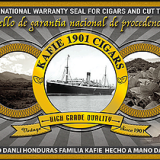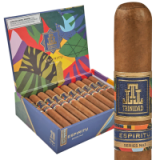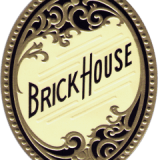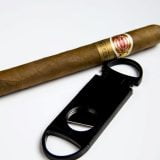Aging cigars is a fascinating process and a key part of enjoying the rich flavor and aroma that comes with smoking a quality cigar. Cigar aficionados have long recognized the unique complexities of aging cigars, as it affects everything from taste to draw. Aging cigars requires careful attention to detail, as well as an understanding of how certain conditions can affect the flavor and body of each cigar.
Contents:
When you age a cigar, you are allowing natural flavors to develop over time. The temperature, humidity levels, and air flow in your humidor all play an important role in achieving optimal aging results for any type of cigar. While there are some general guidelines that apply when it comes to aging cigars, the specifics will vary depending on the type and size of each individual stick.
To ensure maximum flavor potential when aging cigars, many experts recommend storing them at temperatures between 65-72°F (18-22°C) with relative humidity levels around 68-72%. This environment helps preserve moisture content while also allowing flavors to develop over time without becoming overly dry or bitter. It’s also important to note that exposure to direct sunlight should be avoided at all costs; UV rays can quickly break down essential oils found in tobacco leaves which will ruin any aged cigar’s flavor profile.
One major benefit of aging cigars is that they become more mellow over time due to oxidation and evaporation processes which take place inside your humidor. This means that even if you start out with a particularly strong blend or dark wrapper leaf, after some years it will become much smoother on the palate compared with its younger counterparts thanks to these changes in composition brought about by proper storage conditions within your humidor space.
Many cigar enthusiasts enjoy experimenting with different blends or wrappers before committing fully into buying larger boxes or packs of sticks – this allows them to test how various tobaccos change over time so they can select those best suited for their tastes after they’ve had an opportunity for extended rest periods within their own personal humidors.
Aging Cigars: The Basics
As many aficionados are aware, aging cigars is a great way to enhance the flavor and complexity of your favorite smokes. With that in mind, there are some key things you should know before diving into this exciting world.
To begin with, it’s important to remember that not all cigars benefit from extended aging. Generally speaking, milder blends such as Connecticut shade or natural wrapper varieties tend to age better than fuller-bodied counterparts like maduros or oscuros. If you’re unsure which type of cigar you should be storing for longer periods of time, experiment with different blends and see what works best for your palate.
The second factor to consider when aging cigars is proper storage conditions. Cigars must be stored in an environment where temperature and humidity levels can remain consistent–ideally between 65-70 degrees Fahrenheit and 68-72% relative humidity respectively. Without these ideal conditions, cigars will dry out or become over humidified resulting in poor smoking quality once lit up. Investing in a quality humidor is essential if you plan on aging your sticks for any length of time; however if you don’t want to go through the hassle (or expense) of purchasing one then make sure to check the seals on whatever container you choose for optimal airtightness.
The Benefits of Aging Cigars
Aging cigars is a practice that many cigar aficionados swear by, and with good reason. It has several benefits which make it an attractive option for those looking to elevate their smoking experience.
The act of aging your cigars allows them to develop in flavor over time as the oils within the tobacco blend together and become richer in taste. This can be particularly advantageous if you are enjoying a milder variety of cigar as this process will help to bring out subtleties in its flavor profile that would otherwise remain hidden. When cigars are properly aged they also tend to burn more slowly than fresh ones; allowing you to savor each puff without having to constantly relight or struggle with uneven burning.
Aging your cigars helps them become much more resilient against damage from both heat and humidity; ensuring that they remain safe during transport or storage even if conditions aren’t ideal. By taking this step before you smoke your favorite stick, you can rest assured knowing that no matter what kind of environment it’s stored in it won’t affect its quality when smoked later on down the line.
Long-Term Storage Considerations
Aging cigars can be an incredibly rewarding process, but it requires proper care and attention to ensure that the cigar remains in good condition. When storing cigars for long-term aging, there are certain considerations to take into account in order to maintain the best possible quality.
Humidity is one of the most important factors when it comes to storing a cigar. It’s essential that you keep your cigars at a relative humidity (RH) between 62%-72%. Too much or too little humidity can damage the flavor and texture of your cigars over time. A good way to maintain this level of RH is by using a humidor with digital hygrometers which measure both temperature and humidity levels inside. This will help ensure your cigars stay properly humidified for as long as possible.
Another factor you’ll need to consider when aging cigars is light exposure. Too much light can cause discoloration on the wrapper leaf which will negatively impact its flavor profile over time, so it’s important to store them in an area with minimal sunlight exposure. If you don’t have access to such an area, investing in a dark colored cedar box or something similar would also work well for protecting your stash from direct light sources.
Air circulation should be taken into account when aging your cigars as well; if left unchecked it could lead to mold growth due to excessive moisture buildup within the humidor or cedar box itself – not ideal. To prevent this from happening make sure there’s adequate airflow around each individual cigar, either through adding some extra ventilation holes or regularly rotating/shuffling them around every few months so they’re not all bunched up together tightly against one another all of the time.
Humidity and Temperature Control
Storing cigars for aging requires attention to both humidity and temperature. In order to successfully age your cigars, the relative humidity of the environment should be between 65% and 72%, with a steady temperature range from 68°F to 70°F (20-21°C). If the humidor is too dry, the cigar wrapper will crack or unravel; if it’s too moist, mold may grow on the tobacco.
An accurate hygrometer should be used to measure and maintain humidity levels inside of your storage space. Investing in a thermometer can help you control temperatures more accurately. It’s also important to use an appropriate humidification system – preferably one that uses distilled water instead of tap water which contains minerals that could damage cigars over time.
When it comes to storing single sticks or small batches of cigars without a proper storage unit, consider using Boveda Packs which are designed specifically for this purpose. These packs provide precise moisture control and do not require any maintenance whatsoever – simply place them inside an airtight container with your cigars and forget about them.
Selecting the Right Cigar for Aging
When it comes to cigar aficionados, there are few activities more rewarding than aging cigars. This process of aging is a complex one that requires precision and knowledge, but when done correctly can result in a truly unforgettable smoking experience. When selecting the right cigar for aging, there are several factors to consider: size, wrapper leaf type, filler blend and tobacco origin.
The size of a cigar plays an important role in how well it will age over time. Larger sizes tend to benefit from additional time spent in the humidor as they have larger amounts of filler tobaccos which take longer to meld together into an enjoyable smokeable product. Similarly, shorter smokes should be selected with care since smaller vitolas will reach their peak flavor sooner than larger ones.
Wrapper leaf type also matters when choosing cigars for aging; some varietals such as Maduro or Oscuro wrappers require additional time in order to properly develop while Connecticut shade-grown wrappers tend to burn better after only minimal aging periods due to their lighter texture and delicate aroma profiles. Selecting the correct wrapper will depend on personal preference but careful consideration should be taken before committing a box purchase for extended storage periods beyond two years.
Filler blends play an equally critical role in determining how suitable a particular cigar might be for long-term aging scenarios; certain blends may contain tobaccos from multiple countries which need extra time for all flavors and aromas of each country’s individual leaves to properly harmonize within the final product during maturation periods that can last up six months or more depending on climate conditions stored at. Knowing where your tobacco was grown is key here so research prior purchases carefully.
Tobacco origin must also be considered when selecting cigars suitable for long-term storage – some regions may produce higher quality plants than others due largely in part to regional soil composition and local farming techniques used by growers located therein; this information is often readily available through retail outlets specializing in premium brands so doing some homework ahead of purchasing could yield positive results down the road.
What to Avoid When Aging Cigars
When it comes to cigar aging, many people think that any humidor is good enough. However, there are certain factors you should consider in order to get the best out of your cigars. Temperature and humidity play an important role in preserving the flavor of your cigars, so make sure you keep a consistent level throughout the aging process. Do not store them in direct sunlight or near strong sources of heat as this can damage the tobacco leaves and reduce their shelf life.
Another factor to be aware of when aging cigars is light exposure. Prolonged exposure to bright lights can cause discoloration and fading on the wrapper leaf which affects its taste. As such, it is important to ensure that all cigars are stored away from windows and other sources of natural light such as overhead lighting fixtures or bulbs.
Be mindful of environmental factors such as dust or pollutants that could affect the quality of your cigar’s smoke. Always make sure to use a clean cloth for wiping off excess moisture before placing it into storage, and inspect each cigar periodically for signs of mould growth or any other irregularities before smoking them again after long periods in storage.
Common Mistakes in Aging Cigars
When it comes to aging cigars, many enthusiasts make the mistake of thinking that the process is as simple as just storing them away in a humidor and waiting for them to reach peak flavor. Unfortunately, this isn’t the case; there are several common mistakes made when it comes to aging cigars which can drastically reduce their quality or even ruin them altogether.
One of these mistakes is not paying attention to temperature. Cigars should be stored at around 70-72 degrees Fahrenheit with 70% humidity, anything outside of this range can negatively affect their taste and condition. Too much heat will cause a cigar’s oils to evaporate while too little heat will cause it to dry out; both resulting in an inferior smoke. It’s also important to note that drastic changes in temperature should be avoided at all costs as they can lead to mold growth on the wrappers or splitting due to expansion and contraction of the tobacco within.
Another big mistake people make when aging cigars is assuming they don’t need maintenance over time. Many fail to realize that like any other organic material, cigars do eventually expire so rotation and inspection are necessary from time-to-time if you want your collection aged properly and tasting its best. Inspecting your cigars occasionally helps ensure no damage has occurred such as splits, cracks or insect infestation; plus rotating allows for more uniform aging throughout your entire collection by ensuring some sticks aren’t sitting in storage for years longer than others before being smoked.
Uncovering the Best Aged Cigars
When it comes to finding the best aged cigars, knowledge is power. Knowing what to look for when shopping can make all the difference in getting a high-quality cigar. It’s important to understand that not all aging processes are created equal, and there are certain techniques used by cigar makers that can help you identify the best of them.
You should know that some cigars age better than others due to their wrapper leaves or binder tobaccos. In general, wrappers with higher oil content tend to age better because they have a richer flavor profile after extended storage time. This means you should always check for darker wrappers on your cigars as these will often indicate a longer aging process and more complex flavors. Selecting cigars made from Cuban tobacco tends to be ideal if you’re looking for a well-aged smoke as this variety has been proven over time to age exceptionally well compared with other varieties of tobacco used in cigar making today.
Checking the box date is another way of uncovering an aged cigar worth smoking – but don’t let this be your only guide. Many boxes are labeled with an expiration date which may indicate how long ago they were put up for sale rather than how long they’ve actually been aging since rolling off the production line – so do bear this in mind when shopping around for premium smokes! With some research and practice, though, it’s possible to find aged cigars that will truly delight your palate and provide a memorable experience every time you light up one of these luxurious smokes.











